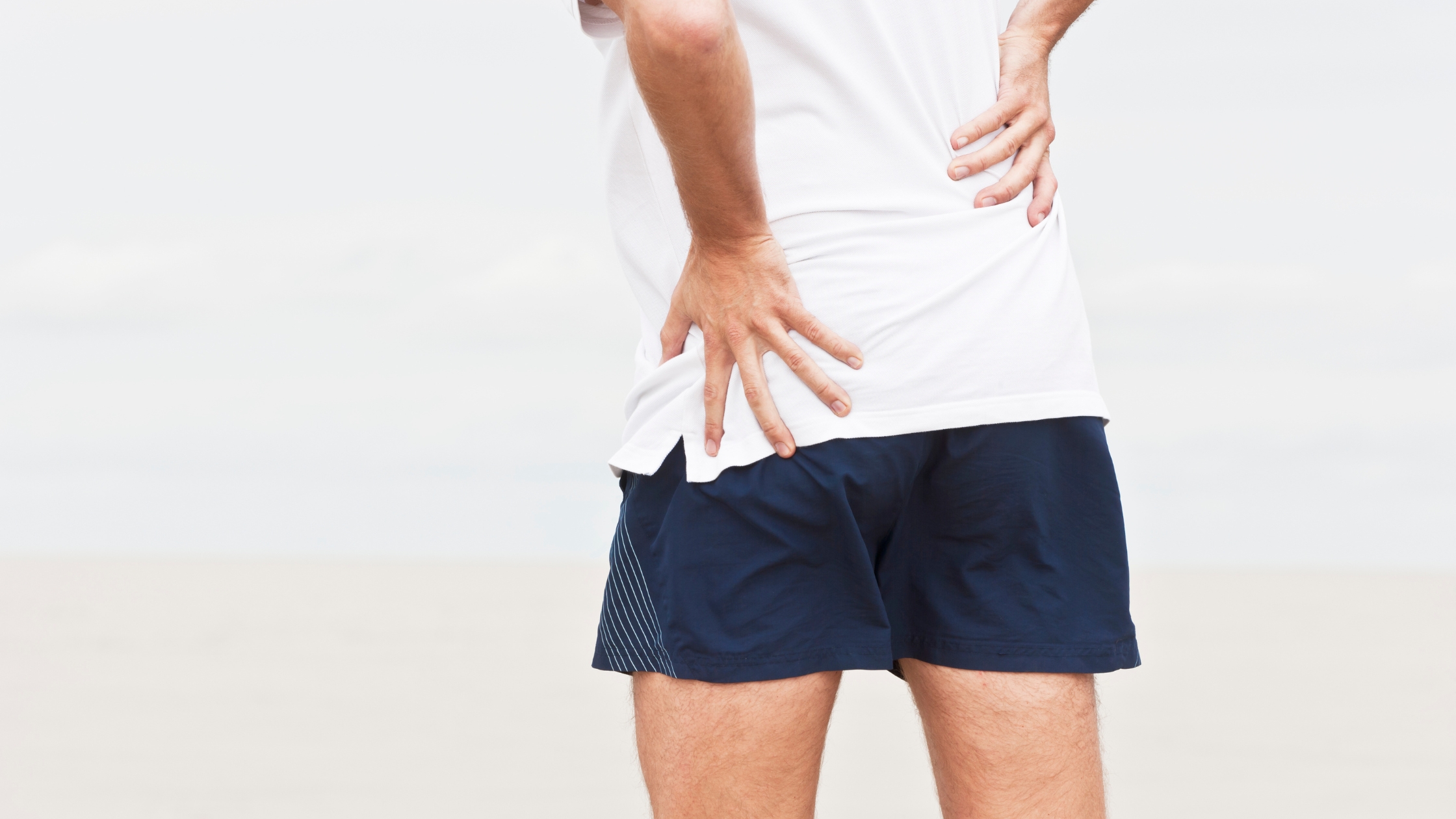Effective Treatments for Arthritis in the Hips at Portland Wellness Care
How Does Arthritis Affect the Hips?
Arthritis affects the hips by causing inflammation, pain, stiffness, and reduced mobility. Daily tasks including walking, climbing stairs, and standing for extended periods may become challenging as a result. Because of the increased friction caused by bone-on-bone contact and deterioration of the hip joint, movement is restricted, and discomfort increases. Stiffness and inflammation may intensify as hip arthritis worsens.
Rheumatoid arthritis and osteoarthritis are the two most prevalent forms of arthritis that impact the hips. Rheumatoid arthritis is an autoimmune disease that causes inflammation in the joint lining. Osteoarthritis develops with age and is caused by joint wear and tear. Hip arthritis can cause joint deformity and require hip replacement surgery, physical therapy, or medication to relieve pain and restore function.
What Causes Osteoarthritis in the Hip?
The cause of osteoarthritis in the hip is degeneration of the cartilage that cushions the hip joint. Genetics, age, or prior trauma can contribute to this wear and tear over time. Bones rub against one another when cartilage degrades, causing discomfort, stiffness, and decreased mobility. This leads to hip OA symptoms such as joint grating, and pain when moving. The joint may become distorted or inflamed, impairing function and affecting day-to-day activities.
Common Symptoms of Arthritis Hip Pain
Symptoms of arthritis in the hips develop gradually and worsen over time. Chronic hip pain and stiffness are common in the morning or after periods of inactivity. Limited range of motion makes it challenging to bend, walk, or climb stairs with OA hip arthritis. Symptoms such as a grating sensation when moving and swelling may cause discomfort around the hip joint. When hip arthritis progresses, it can cause joint deformity or limping, which can reduce mobility. Treating hip arthritis symptoms early can delay the disease’s progression.
How to Treat Arthritis in the Hip
While medications can be used to lessen pain and inflammation, they sometimes come with unwanted side effects, especially with long-term use. When hip arthritis is severe, physicians might prescribe cortisone injections but they only provide relief for a short time and can damage joints when used too frequently.
For hip arthritis, holistic therapies including acupuncture, therapeutic massage, and laser therapy offer better ways to ease pain, increase range of motion, and improve general quality of life. They also postpone surgery and lessen the need for prescription drugs. To lessen inflammation and chronic pain, acupuncture stimulates spots on the body to increase blood flow while producing endorphins and other natural painkillers. By relaxing the tense muscles surrounding the hip joint, therapeutic massage increases circulation, eases tense muscles, and lessens stiffness. This type of massage can also increase flexibility. Low-level laser light is used in laser therapy to penetrate tissues, repair cells, and lower inflammation. It reduces edema and increases joint mobility.
Physiotherapy can offer relief with strengthening exercises to improve range of motion and functional movement. Acupuncture, therapeutic massage, and laser therapy are some holistic treatments for hip arthritis that reduce pain, improve mobility, and enhance overall quality of life. They also reduce the need for medications and delay surgical intervention.
The Best Over-the-Counter Medicine for Hip Joint Pain
Some over-the-counter medications help reduce inflammation and alleviate pain for hip arthritis sufferers. Nonsteroidal anti-inflammatories like ibuprofen or naproxen (NSAIDs)may provide some relief from discomfort. Another hip arthritis remedy for joint pain is acetaminophen, although it doesn’t treat inflammation. Topical gels and creams with diclofenac, capsaicin, or menthol can numb the affected area and may lower inflammation. Combining these treatments with rest, stretching, and mild exercise can sometimes improve mobility.
Lifestyle Changes to Reduce Arthritis Hip Pain
Lifestyle changes can sometimes lessen hip pain associated with hip osteoarthritis. Being overweight puts more strain on the hip joint, making discomfort and inflammation worse. Whole grains, fruits, vegetables, and omega-3 fatty acids are nutrients that may reduce inflammation. Regular low-impact exercises like swimming and walking strengthen muscles around the joint for added flexibility. Canes and supportive footwear may help distribute weight more evenly, reducing pressure on the hip joint, while proper posture reduces strain on the hip. Practicing Tai Chi, yoga, and stretching increases flexibility, balance, and mobility, which lowers the chance of falling.
When to Consult a Specialist at Portland Wellness Care for Arthritis in the Hip
If you experience persistent hip pain, stiffness, and reduced mobility that interferes with your daily activities, consult one of our specialists at Portland Wellness Care. We offer a comprehensive evaluation and will develop a plan of care to encourage healing. Arthritis can progressively worsen when left untreated and lead to more severe joint damage. Incorporating holistic treatments such as acupuncture, therapeutic massage, and laser therapy into an arthritis management plan offers a non-invasive way to address both the symptoms and underlying causes of hip arthritis.
Natural Remedies and Supplements to Support Joint Health
Natural remedies and supplements can support joint health and manage arthritis symptoms by reducing inflammation and promoting cartilage maintenance. Glucosamine and chondroitin preserve cartilage and ease joint pain, while turmeric and ginger have natural anti-inflammatory benefits. Omega-3 fatty acids from fish oil help improve joint mobility and reduce stiffness. Collagen supplements support cartilage regeneration, and vitamin D and calcium are essential for strong bones to reduce discomfort. Before taking any supplement, consult with a qualified physician.
Managing Arthritis Hip Pain Long-Term
Reduced discomfort, increased mobility, and improved joint health are some of the ways that acupuncture, therapeutic massage, and laser therapy can help manage hip arthritis. Acupuncture supports the healing process by releasing helpful endorphins which reduces inflammation. Therapeutic massage reduces stiffness and muscle tension which are common in arthritis sufferers. Low-level laser light encourages tissue repair and cell regeneration when laser therapy is used for arthritis. These therapies provide drug-free options for managing osteoarthritic hip pain.
Does Physiotherapy Help People Who Suffer From Hip Arthritis?
Lower body injuries can be treated to promote long-term healing with specialized physiotherapy. Hip osteoarthritis, labral tears, and hip flexor tendinitis can be treated with physiotherapy to increase joint mobility and strengthen muscles. Hip impingement and snapping hip syndrome are treated by correcting imbalances and alignment. The goal of post-operative recovery and rehabilitation following hip replacements or fractures is to regain function and strength. Physiotherapy can also be used to treat hip pain that is caused by sciatica, tendinitis, or hip dysplasia.
The therapists at Portland Wellness Care are trained in current techniques and research, ensuring high-quality care. Every patient receives a customized treatment plan created for their specific conditions, promoting rehabilitation. Our clinic uses evidence-based practices, backed by scientific research and proven methods for addressing injuries. Call us to schedule an appointment today to manage and relieve your hip arthritis pain. You don’t have to continue suffering. We use a holistic approach that considers both your emotional and physical well-being to support your long-term recovery.






